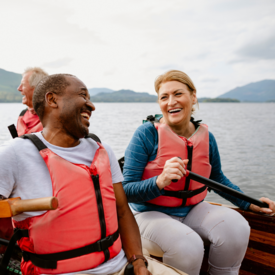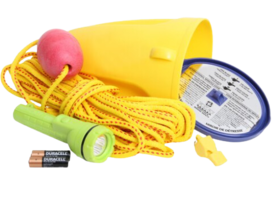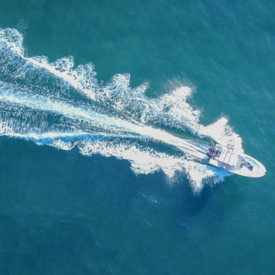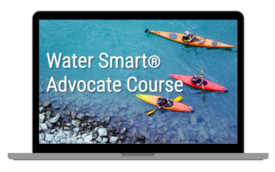Boating and Fishing Safety Tips
Top Ten Boating and Fishing Safety Tips from the Lifesaving Society:
Top Ten Boating and Fishing Safety Tips from the Lifesaving Society:

1. Choose it - Use it! Always Wear a Lifejacket or Personal Flotation Device (PFD):
Don't just have it in the boat, pick one and wear it. The vast majority of Canadian boating victims were not wearing a lifejacket or PFD when they drowned. Trying to put on a lifejacket or PFD in an emergency is like to trying to put on your seatbelt in the middle of a car crash.
Lifejackets and PFDs have come a long way. Inflatable types and a wider range of colours and styles make it easier for you to find and wear the one that's right for you. Just make sure it's Transport Canada approved!
2. Boat Sober:
According to the 2024 Alberta Drowning Report, alcohol consumption was involved in 50% of boating deaths. Alcohol intensifies the effects of fatigue, sun, wind and boat motion to negatively affect balance, judgement and reaction time.
Be Water Smart® - don't drink and drive your boat!

3. Have and Wear the Right Gear:
Wear your lifejacket or PFD, of course, as well as good sunglasses, sunscreen and appropriate clothing. Transport Canada legislates other mandatory equipment, such as one approved lifejacket per person, buoyant heaving line, paddles, bailer, whistles and flashlights. Other important gear can include fire extinguishers, flares, and first aid kits are also important gear to have with you.
4. Know Before You Go:
Avoid potential danger by taking a few minutes before your boating trip to make a simple checklist:

5. Never Stand Up in Your Small Powerboat, Canoe, or Other Similar Watercraft:
Numerous drownings occur when people stand up and move around on small boats.
6. Don't Overload:
Avoid capsizing by following the load restrictions of your craft. This includes not only the number of passengers, but also the weight of your gear.
7. Follow the Rules of the Road:
Be courteous of others using the waterways and obey all boating rules. Be watchful of swimmers and other boaters, and always have a spotter for water-skiers and tube riders.

8. Drive Your Powerboat or PWC Responsibly:
Look before you act, stay low, drive at moderate speeds, be aware of changing weather conditions, and drive with extreme caution and proper lights after dark.
9. Get Carded:
Get trained in boat safety. You can get ready for the Pleasure Craft Operator Card test by taking a Lifesaving Society Boat Operator Accredited Training (BOAT)™ course or study at home, using the Lifesaving Society BOAT Study Guide, and take the test at one of our BOAT Test Centres. The course will help you to know the "rules of the road", how to respond in a boating emergency, and how to operate a pleasure craft safely. Everyone who operates a power-driven boat needs proof of competency. According to Transport Canada, a variety of documents my serve as proof of competency.
10. Get Trained:
Be prepared in the event of a crash - whether your boat capsizes, or you need to rescue someone else. Become aware of the dangers of cold water. Take a Lifesaving Society course today!

To learn more about how to be safe in, on, and around water, take our free online Water Smart® Advocate course!